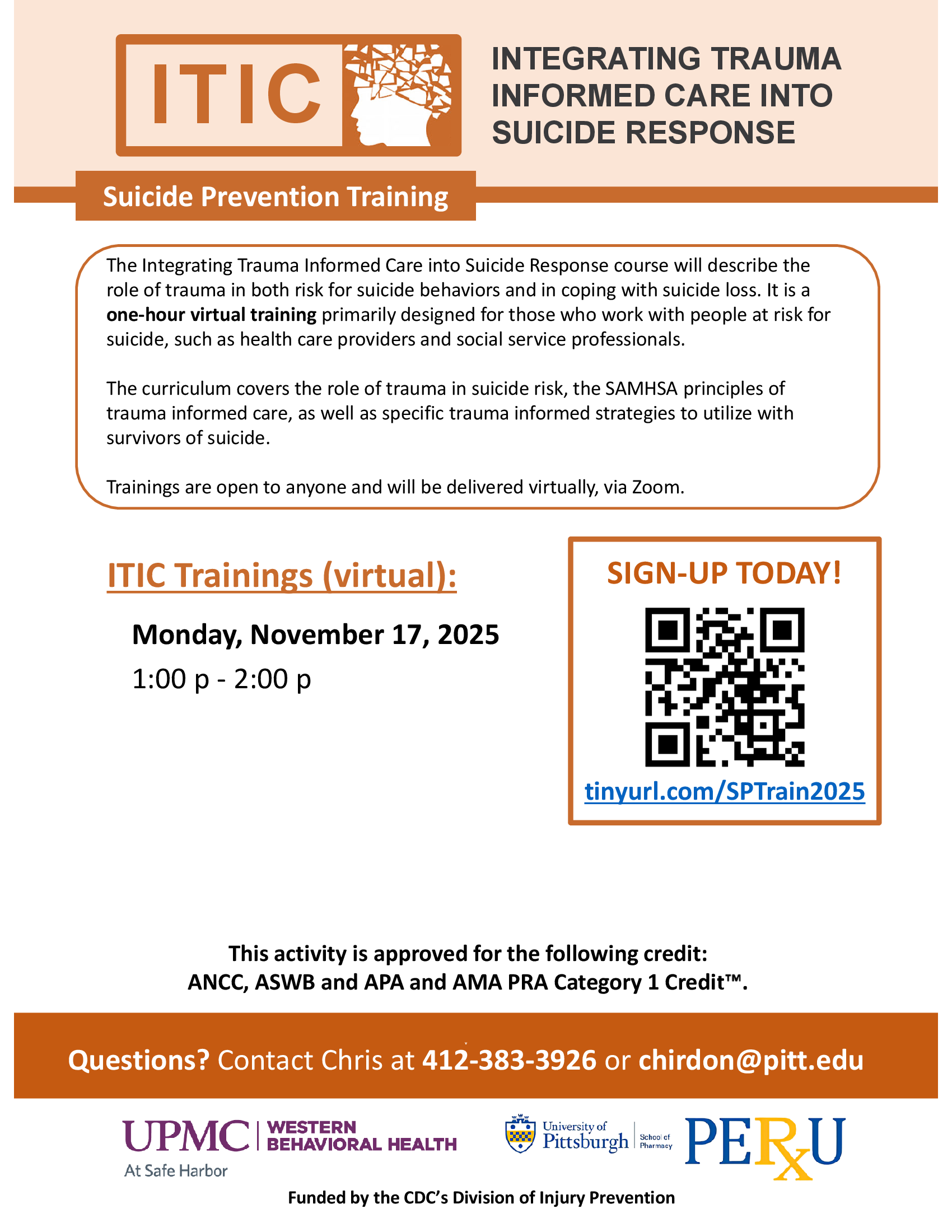
- This event has passed.
Integrating Trauma Informed Care into Suicide Response (ITIC)
Training Details
Duration1 hour
CostFree
ApprovalsThis activity is approved for the following credit: AMA PRA Category 1 Credit™, ANCC, ASWB, and AAPA Category 1 CME.
Quantity1 hour CE
ProviderPitt PERU and UPMC Western Behavioral Health at Safe Harbor
Audience
Open to all community members, Veterans and their families, and practitioners across healthcare, behavioral health, social services, education, first response, and peer support.
Description
This training helps attendees understand how trauma can shape suicide risk, coping, and engagement before, during, and after a crisis. Using SAMHSA’s trauma-informed principles, we translate concepts into practical steps that create safety, trust, collaboration, empowerment, and cultural humility. You will learn ways to reduce re-traumatization, strengthen connection, and support recovery for Veterans and civilians across settings. The session links principles to actions you can take today, including language, environment tips, and small process changes that improve care and community support. Participants leave with strategies that fit both professional practice and everyday life.
Outcomes
Participants connect trauma-informed principles to suicide prevention, reduce re-traumatization in conversations and settings, and improve engagement and follow-through after attempts or losses.
Learning Objectives
- Explain how trauma exposure and responses can influence suicide risk and help-seeking.
- Apply SAMHSA trauma-informed principles to real scenarios.
- Demonstrate language and environmental adjustments that increase psychological safety.
- Integrate peer, family, and cultural strengths into safety and recovery plans.
- Evaluate interactions for potential triggers and adapt approach accordingly.
Questions? Contact Chris at 412-383-3926 or chirdon@pitt.edu
Funded by the CDC’s Division of Injury Prevention: https://www.cdc.gov

